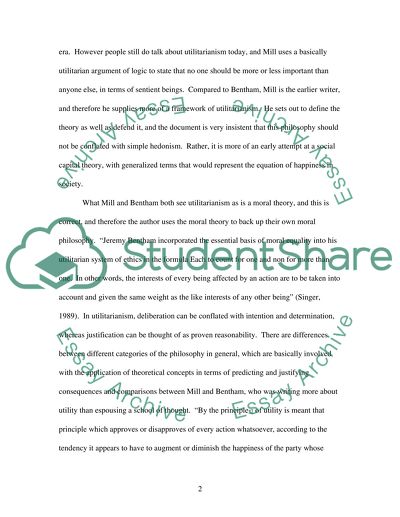Cite this document
(Utilitarianism in the Works of Jeremy Bentham and John Stuart Mill Essay Example | Topics and Well Written Essays - 1750 words, n.d.)
Utilitarianism in the Works of Jeremy Bentham and John Stuart Mill Essay Example | Topics and Well Written Essays - 1750 words. https://studentshare.org/ethics/1563325-philosophical-ethics-utilitarianism
Utilitarianism in the Works of Jeremy Bentham and John Stuart Mill Essay Example | Topics and Well Written Essays - 1750 words. https://studentshare.org/ethics/1563325-philosophical-ethics-utilitarianism
(Utilitarianism in the Works of Jeremy Bentham and John Stuart Mill Essay Example | Topics and Well Written Essays - 1750 Words)
Utilitarianism in the Works of Jeremy Bentham and John Stuart Mill Essay Example | Topics and Well Written Essays - 1750 Words. https://studentshare.org/ethics/1563325-philosophical-ethics-utilitarianism.
Utilitarianism in the Works of Jeremy Bentham and John Stuart Mill Essay Example | Topics and Well Written Essays - 1750 Words. https://studentshare.org/ethics/1563325-philosophical-ethics-utilitarianism.
“Utilitarianism in the Works of Jeremy Bentham and John Stuart Mill Essay Example | Topics and Well Written Essays - 1750 Words”. https://studentshare.org/ethics/1563325-philosophical-ethics-utilitarianism.


